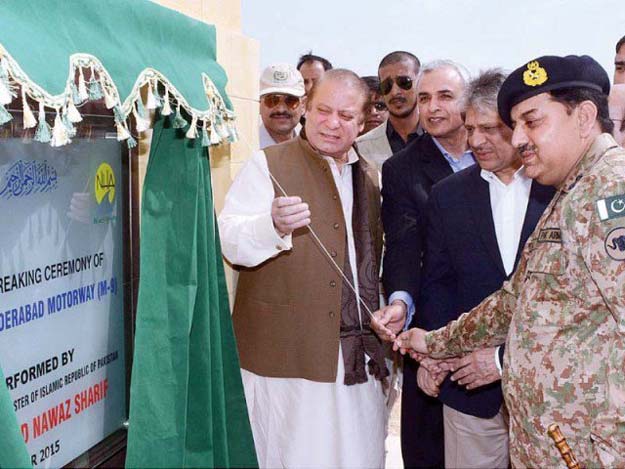

The M-9 project will significantly improve the connection between Karachi and Hyderabad and is the seventh stage of the overall motorway system that would connect Karachi and Gwadar ports in the south to Multan, Lahore, Rawalpindi and ultimately to Peshawar in the north. The motorway project would supplement and ultimately serve to replace the old national highways, which are not adequate for the growing needs of the country. Contrary to popular opinion, far from being an extravagance, the motorway system is long overdue. The last major thoroughfare that runs through the entire length of the country was the N-5 National Highway, which was originally built by the British and the last phase of which was completed by 1952. For more than 40 years after that, there was virtually no effort made to improve upon that legacy infrastructure. In inflation-adjusted terms, the economy has grown 19 times in size since the N-5 was completed. Our needs have clearly grown.
The motorway is important — and affects ordinary people — for one very simply reason: it reduces transit time and therefore perceived distances between major cities. Few people ever think of driving from Karachi to Lahore because it would simply take too much time, sometimes even longer than 24 hours. The distance between the two largest cities in the country is just under 1,300 kilometres. At the legal maximum speed allowed on the Pakistan motorway system, that distance should take less than 11 hours to complete. In other words, the current system slows down speeds by a factor of at least 50 per cent. Reducing distances also has the positive social outcome of reducing perceived distances. It is difficult to think of somebody as the ‘other’ if they live only a few hours’ drive away, which one supposes is what the prime minister was referring to when he said: “We want to bring hearts of people living across the country closer.” In a country riven by divisions that often turn violent, what could be more necessary than that?
We do have one critique of the Nawaz Administration and it is an important one. While the motorway system is important, it is, by definition incomplete since it all but excludes most parts of Balochistan and Khyber-Pakhtunkhwa, particularly their hinterlands. Indeed, those areas are hinterlands precisely because there is no major highway running through them. We understand that the plan is to ultimately construct highways in those parts of the country through the Pakistan-China Economic Corridor, but the government’s plans would be lent more credence if it took more direct ownership of them by, for example, at least announcing and naming a future highway that connects Peshawar to Gwadar via Quetta. Given Beijing’s interest and willingness to finance, such a highway will likely be built. But including it in the list of the government’s top infrastructure priorities will make the motorway system a truly inclusive project that unifies the nation.
Published in The Express Tribune, March 18th, 2015.
Like Opinion & Editorial on Facebook, follow @ETOpEd on Twitter to receive all updates on all our daily pieces.












COMMENTS (1)
Comments are moderated and generally will be posted if they are on-topic and not abusive.
For more information, please see our Comments FAQ